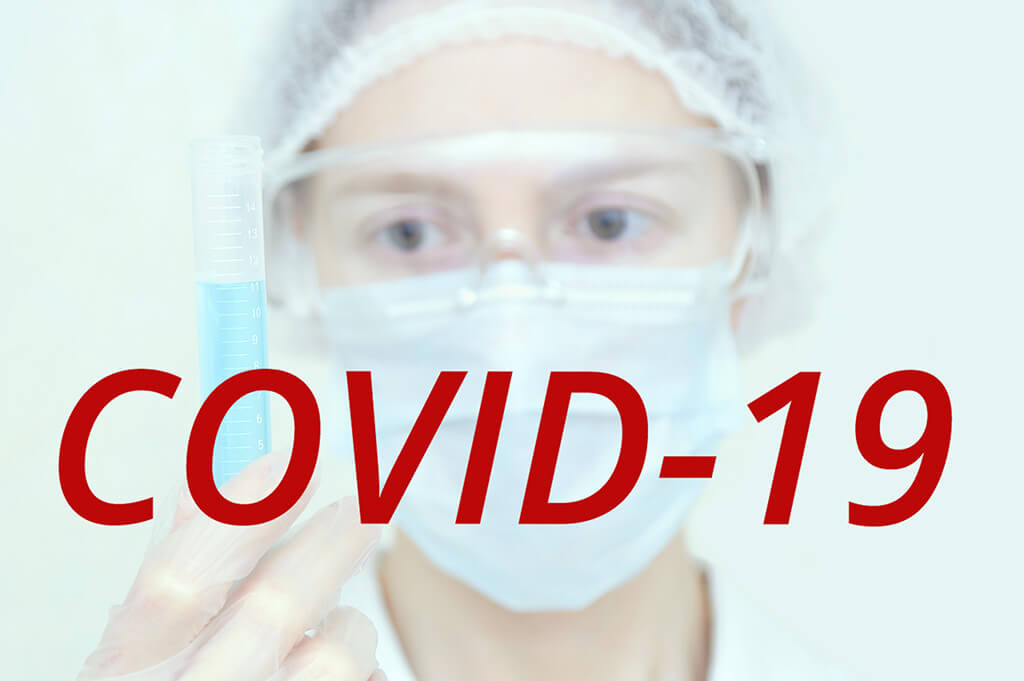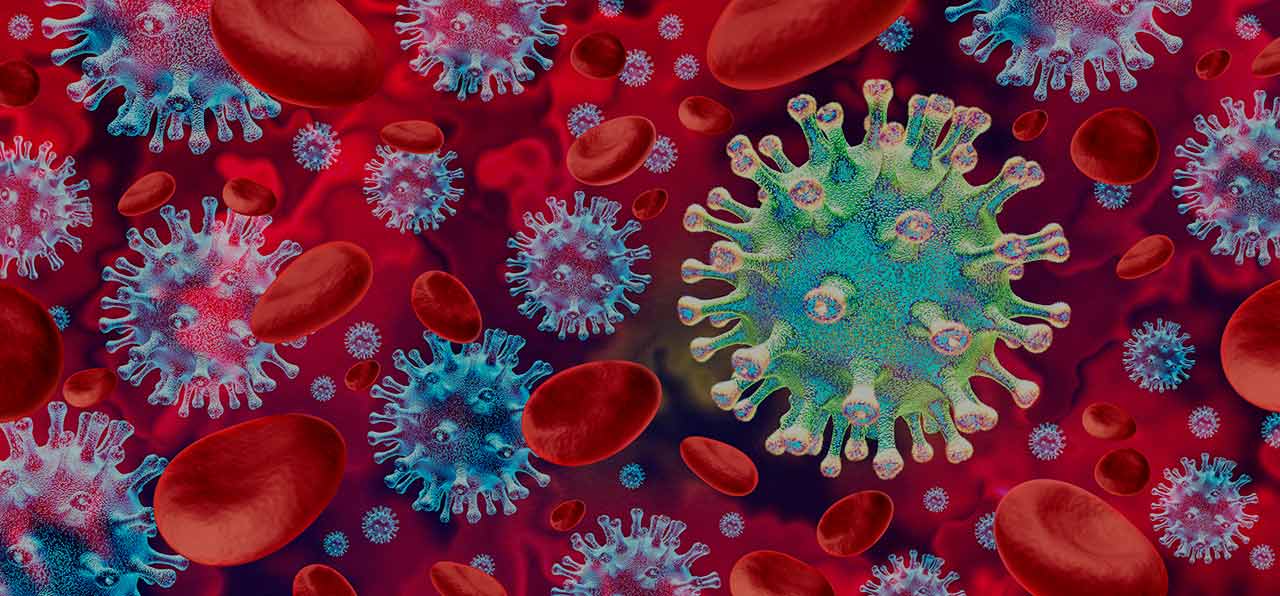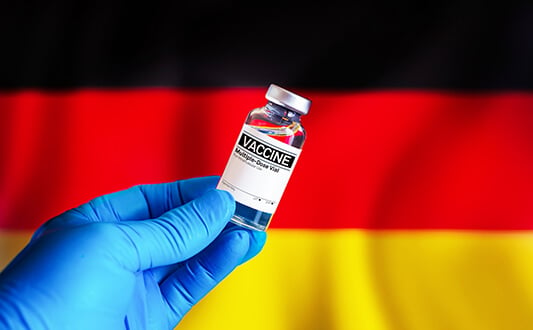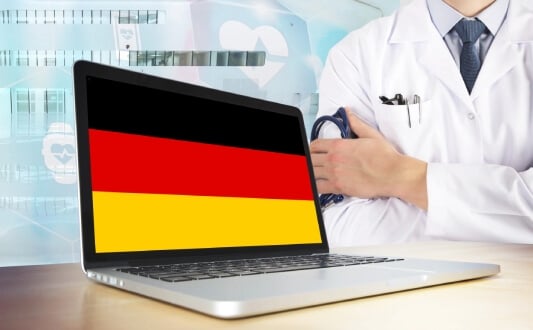COVID-19 is a disease with a viral vascular lesion of the whole body. The virus attacks the ACE2 receptors present in various organs and tissues; therefore, it causes symptoms and complications not only in the lungs. A few months after the onset of the pandemic, publications on post-COVID-19 syndrome began to appear more and more often in the medical literature. It turned out that people after the disease had long-lasting symptoms of various internal organs. Symptoms diminish or disappear only a few months after clinical recovery.
Many complications of post-COVID-19 syndrome lead to irreversible consequences, for example, pulmonary fibrosis, myocardial infarction, stroke, and liver and kidney failure. Timely treatment will help the patient avoid complications.
Promising treatment methods that are currently being used in clinical trials include:
- Hyperbaric oxygen therapy, antihistamines and antileukotriene drugs for the correction of respiratory disorders
- Histone deacetylase inhibitors for pulmonary fibrosis
- Antioxidants, melatonin, vitamin C, nicotinamide riboside, adaptogens – for the treatment of chronic fatigue
- Monoclonal antibodies that block the CCL5 cytokine function
- Interleukin-6 receptor antagonists
- Stem cells
Complications after treatment are infrequent. During the therapy, you are under the monitoring of doctors who will react in time in case of side effects.
Not all vaccines are accepted in Europe. Therefore, it is easier to enter the EU countries with your immunity and negative PCR test results in some cases.
Manifestations of the post-COVID-19 syndrome
According to the National Institute for Health and Care Excellence (NICE) definition, post-COVID-19 syndrome refers to symptoms that persist three months after infection and cannot be explained by other diseases.
In most cases, the post-COVID-19 syndrome affects those who have had a severe form of the disease. However, there can also be consequences after a mild form of COVID-19. The British study COVERSCAN, which included 500 patients, showed that about 70% of young people without concomitant pathologies had signs of dysfunction of internal organs even four months after the disease. Most often, the disease affected the lungs (33%), the heart (32% ), and less often – the pancreas (17%), kidneys (12%), liver (10%), and spleen (6%). Two-thirds of patients who have suffered from post-COVID-19 syndrome had dysfunctions of more than one organ.
Common symptoms of the post-coronavirus syndrome in adults include:
- Fatigue – 98%
- Muscle pain – 88%
- Headache – 83%
- Sore throat – 85%
- Painful lymph nodes – 80%
- Joint pain after COVID – 80%
- Fever – 75%
- Loss of smell for more than three months – 40%
- Abdominal pain and constipation – 40%
- Weight loss – 20%
- Feeling short of breath – 15%

What are the complications of COVID-19?
Possible complications of coronavirus with long-term health effects are listed below.
Pulmonary fibrosis . It is lung inflammation that leads to the destruction of the lung tissue. It thickens and is replaced by scar tissue. The foci of fibrosis do not allow oxygen to pass through, and therefore impaired pulmonary function develops.
Viral myocarditis . It may not develop immediately but several months after recovery after COVID. Patients develop cardiac arrhythmias, blood pressure decreases, and weakness appears.
Kidney lesion . It is manifested by fluid retention and mildly elevated body temperature.
Liver lesion . There is still no exact data on whether it is a consequence of COVID-19 or the prescription of a large number of drugs, including those that are toxic to the liver.
Pseudomembranous colitis . It is a consequence of the prescription of antibiotics for COVID-19. This is an inflammatory bowel disease that develops 1-2 weeks after completing the course of antibiotic therapy. In 2% of patients, the pathology is severe and requires surgical treatment. Such surgical interventions are performed on an emergency basis. They have a mortality rate of up to 20% since doctors have to remove a significant part of the colon in the presence of bacterial inflammation.
Post-COVID-19 encephalopathy . It is associated with post-COVID vasculitis. The death of brain cells occurs due to increased blood clotting and the formation of blood clots in the blood vessels.
Mental disorders . They develop in 60% of patients. The most common manifestations are panic attacks after COVID, depression and post-depressive state, tearfulness, and anxiety. Cognitive function deteriorates in 50% of patients. Most people develop post-COVID-19 asthenic syndrome. It can have manifestations of varying severity: from slight fatigue to total disability when the patient cannot get out of bed or make a mental effort.
Coronavirus continues to affect internal organs even after recovery. Research on material from 100 deceased patients has shown that this effect is realized through bone marrow lesions. The virus destroys the endothelium, which regulates the maturation and release of red blood cells into the blood. Very large cells (megakaryocytes) appear in the blood, and the production of immune cells is impaired.
Types of the post-COVID-19 syndrome
Depending on the predominant symptoms, the following clinical variants of the post-COVID-19 syndrome are distinguished:
- Respiratory – associated with lung lesion and the effects of mechanical ventilation
- Cardiac – myocarditis, pericarditis, tachycardia, heart failure, thrombosis
- Gastrointestinal – diarrhea, cholestasis (bile retention), deterioration of liver function, gastrointestinal discomfort
- Renal – kidney failure
- Endocrine–decompensated diabetes mellitus or thyroid dysfunction
- Neurological – headaches, insomnia, neuropathy
- Psychopathological – problems with memory and concentration, anxiety, depression, psychosis, post-traumatic stress disorder
- Rheumatic – joint pain, muscle pain, and chronic fatigue
- Dermatologic – hair loss, postcovid rash
- Nutrient deficiency – fatigue, protein deficiency, deficiency or excess of certain nutrients
Effects of COVID-19 on the lungs
Most lung damage occurs in severe forms of coronavirus infection.
According to Y.M. Zhao et al., about 71% of patients have pathological changes in the lungs on the X-ray scan, and 25% have a low diffusing capacity of the lungs three months after discharge. According to B. van den Borst et al., the frequency of this complication is even higher: it develops in 42% of patients.
The main manifestations of the bronchopulmonary system are:
- Progressive shortness of breath due to the development of pulmonary fibrosis.
- Long cough after COVID, usually dry.
- Deterioration in exercise tolerance.
Effects of COVID on the brain
Nervous system complications develop in one out of three patients after the disease. In most cases, these are mild symptoms that persist for a long time: headache, fatigue, weakness, and impaired sense of smell. However, there are also severe manifestations, up to a stroke.
There are several mechanisms by which the virus affects the brain.
Direct brain lesion . SARS-COV-2 reaches the central nervous system in two ways: through the blood, penetrating the blood-brain barrier, and through the nasal mucosa – entering the brain through the olfactory tract. Therefore, many patients have insomnia after COVID, parosmia, distorted sense of smell, and distortion of odors. The doctors assume that the virus affects the neurons in the medulla oblongata and causes hypoxia (oxygen starvation) of the whole brain, developing its edema, intracranial hypertension, and cerebrovascular circulatory disorders.
Immunological lesion . Another mechanism of damage to the central nervous system that can cause adverse long-term effects of coronavirus on the brain is related to the immune response. The body produces a large number of cytokines, and some patients suffer from a cytokine storm. As a result, the function of the vascular endothelium and the blood supply to the brain are disrupted. In case of a cytokine storm, the permeability of the blood-brain barrier increases, so immune factors and viral particles penetrate into the brain parenchyma, causing neuronal death.
Blood clot formation . ACE2 receptors are present in the endothelium of all vessels, so the inner layer of the arteries is also a target for the virus—coagulopathy and thrombus formation increase in some patients, which leads to thrombotic complications.
Why it is better to undergo post-COVID-19 syndrome treatment in Germany on time
Sometimes the mild symptoms of post-COVID-19 syndrome successfully go away on their own. However, this does not always happen.
According to a British study involving 47,780 patients, after being discharged from the hospital within 140 days, one in three was rehospitalized, and the mortality rate during this monitoring period exceeded 10%.
Post-COVID-19 syndrome may cause serious consequences. Respiratory distress syndrome causes progressive pulmonary fibrosis. With the development of postcovid myocarditis, the progression of heart failure is possible. Disorders in the blood coagulation system can cause thrombosis, resulting in myocardial infarction, stroke, or pulmonary embolism. Impaired liver and kidney function are also often progressing and go unnoticed by the patient. Symptoms manifest themselves only in the advanced stages, often after irreversible damage to most of the parenchyma of the organ.
The timely treatment of post-COVID-19 syndrome will allow the person to quickly return to his everyday life: it is necessary to prevent potentially fatal complications and the development of chronic diseases of internal organs.
Treatment methods for the post-COVID-19 syndrome
Patients are carefully examined to identify violations that have arisen after coronavirus infection, and based on the results of the diagnostics, and treatment is provided. It aims to eliminate the primary syndromes caused by damage to the internal organs, dysfunction of hematopoiesis, immune system, and blood coagulation system, weakening the severity of symptoms and improving the quality of life.
Drug therapy:
- Anticoagulants - reduce blood clotting and prevent thrombosis
- Glucocorticoids
- Plasmapheresis – a technology for extracorporeal blood purification
- Non-steroidal anti-inflammatory drugs – in case of fever
- Medications for the correction of arterial hypertension and elimination of tachycardia
- Management of paroxysmal atrial fibrillation: with drugs and electrical cardioversion
- Medicines to reduce gastrointestinal motility – in case of diarrhea
- Sleeping pills, sedatives, antidepressants, and anxiolytics – for insomnia and mental disorders
Whenever required, other symptomatic remedies can also be used: medicines to treat cough, nausea, dizziness, etc.
Post-COVID-19 syndrome often leads to exacerbation of existing chronic diseases. Such patients require additional treatment to compensate for diabetes mellitus and improve kidney and liver function.
Treatment of respiratory diseases . Most patients who have suffered severe infections require respiratory rehabilitation. It is necessary to prevent the formation of irreversible changes in the lung tissue. Respiratory rehabilitation involves the use of special fitness equipment and breathing exercises. Doctors often prescribe anti-fibrotic drugs to prevent pulmonary fibrosis. Some clinics use a new group of drugs to prevent pulmonary fibrosis: histone deacetylase inhibitors.
Treatment of pulmonary fibrosis . It is carried out according to the treatment protocols for idiopathic pulmonary fibrosis. Doctors use glucocorticoids, immunosuppressants, and acetylcysteine. Healthcare professionals abroad use innovative drugs: tyrosine kinase inhibitors and oral antifibrotic drugs. Some patients require long-term oxygen therapy. In the most severe cases, lung transplantation is performed.
Treatment of post-COVID-19 myocarditis . This disease usually disappears on its own after a few months. The task of doctors is to protect the patient from complications during this period, including fatal ones. Severe myocarditis leads to the development of heart failure. Inflammation in the heart muscle is eliminated with glucocorticoids. Anticoagulants are used to reduce the risk of blood clot formation. Some clinics use immunosuppressants. Antiarrhythmic drugs are indicated in severe arrhythmias. It is also possible to use temporary cardiac pacing. With the development of heart failure, patients receive therapy to reduce the manifestations of this condition. In severe cases, doctors resort to mechanical circulatory support devices. Many post-COVID-19 patients suffer from tachycardia and angina attacks. Such patients are prescribed beta-blockers.
Treatment of chronic fatigue . It is carried out with the help of cognitive-behavioral therapy, differentiated therapeutic exercises, and drug therapy.
Why is it worth undergoing treatment in Germany?
You can undergo long COVID syndrome treatment in Germany. This country is distinguished by the excellent training of doctors and well-equipped clinics due to the high level of healthcare funding. It uses innovative treatment methods, many of which are developed by German specialists.
There are several reasons why you should undergo diagnostics and treatment of post-COVID-19 syndrome in Germany:
- High-precision diagnostics : assessment of the function of internal organs, blood coagulation system, detection of chronic diseases, and the consequences of COVID. Doctors assess the individual risk of complications to take steps to prevent them.
- Impact on the pathogenic mechanism : treatment aims to interrupt the mechanisms that lead to the development of symptoms.
- High-quality symptomatic therapy : complements pathogenetic therapy and allows patients to feel better immediately after starting treatment.
- Successful fight against complications : pulmonary fibrosis, myocarditis, arrhythmias, deep vein thrombosis, neurological and other complications of coronavirus infection are successfully treated in Germany.
- Interdisciplinary interaction : you will be treated by doctors of different specializations, and critical decisions are made during boards.
- Comprehensive rehabilitation : a combination of drug therapy, hardware procedures, and other non-drug methods will allow you to improve your well-being in the shortest possible time to return to your everyday life.
With the Booking Health service, you can compare the cost of procedures in different clinics and book treatment at a favorable price. Our experts will help you decide on the choice of a medical center and organize your trip.
Article menu:
- Manifestations of the post-COVID-19 syndrome
- What are the complications of COVID-19?
- Types of the post-COVID-19 syndrome
- Effects of COVID-19 on the lungs
- Effects of COVID on the brain
- Why it is better to undergo post-COVID-19 syndrome treatment in Germany on time
- Treatment methods for the post-COVID-19 syndrome
- Why is it worth undergoing treatment in Germany?
Don't know where to start?
Contact Booking Health






